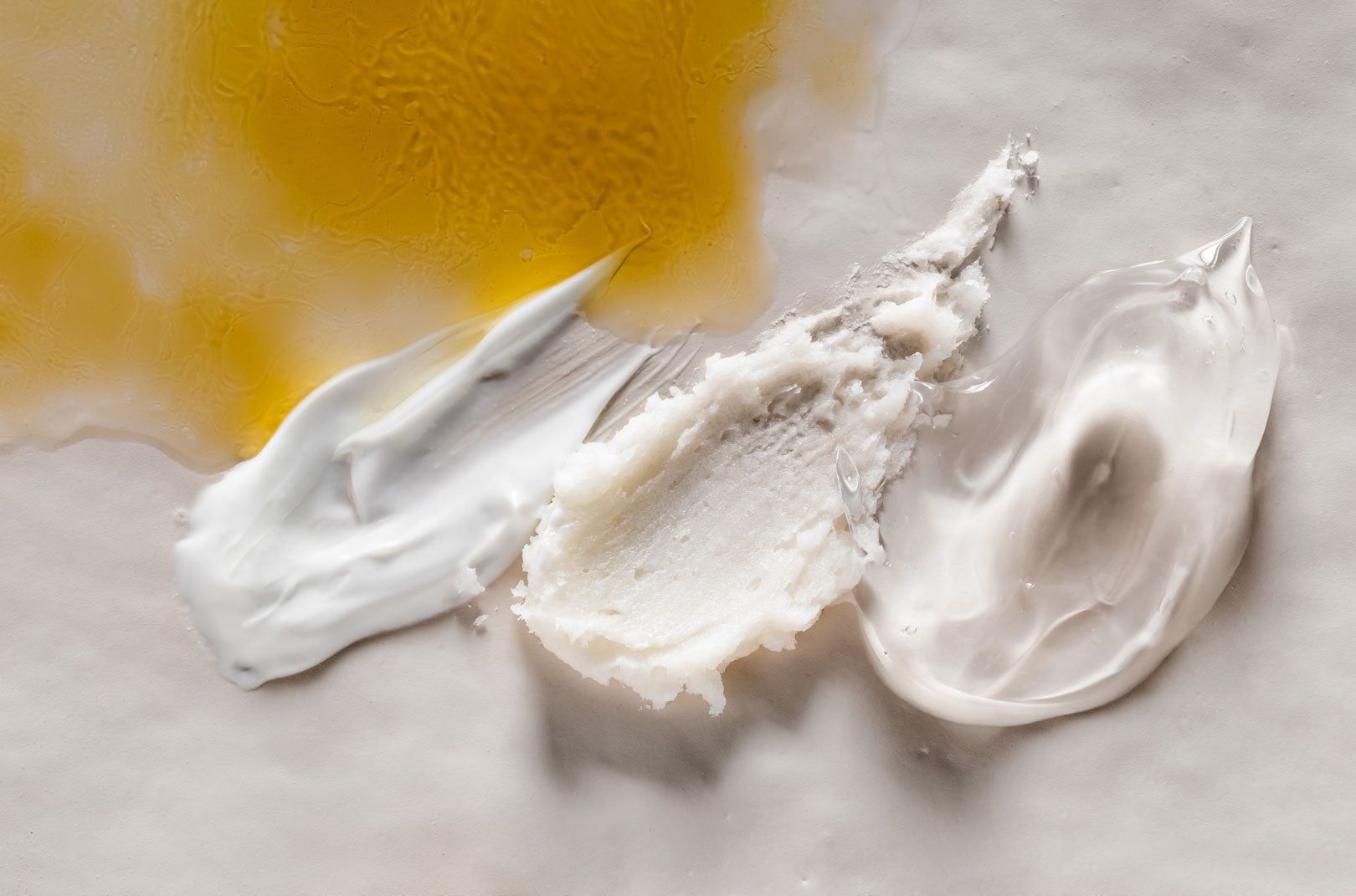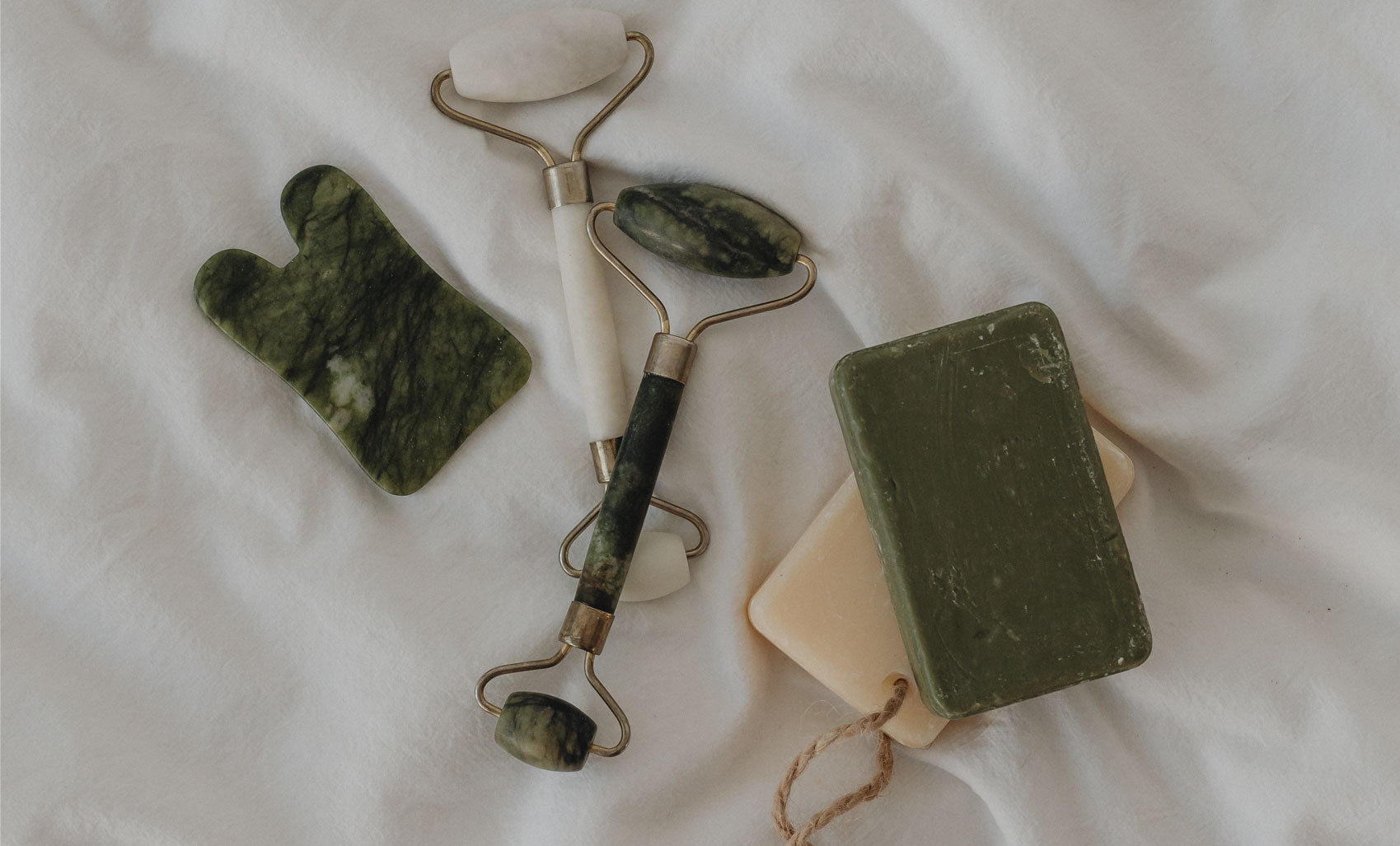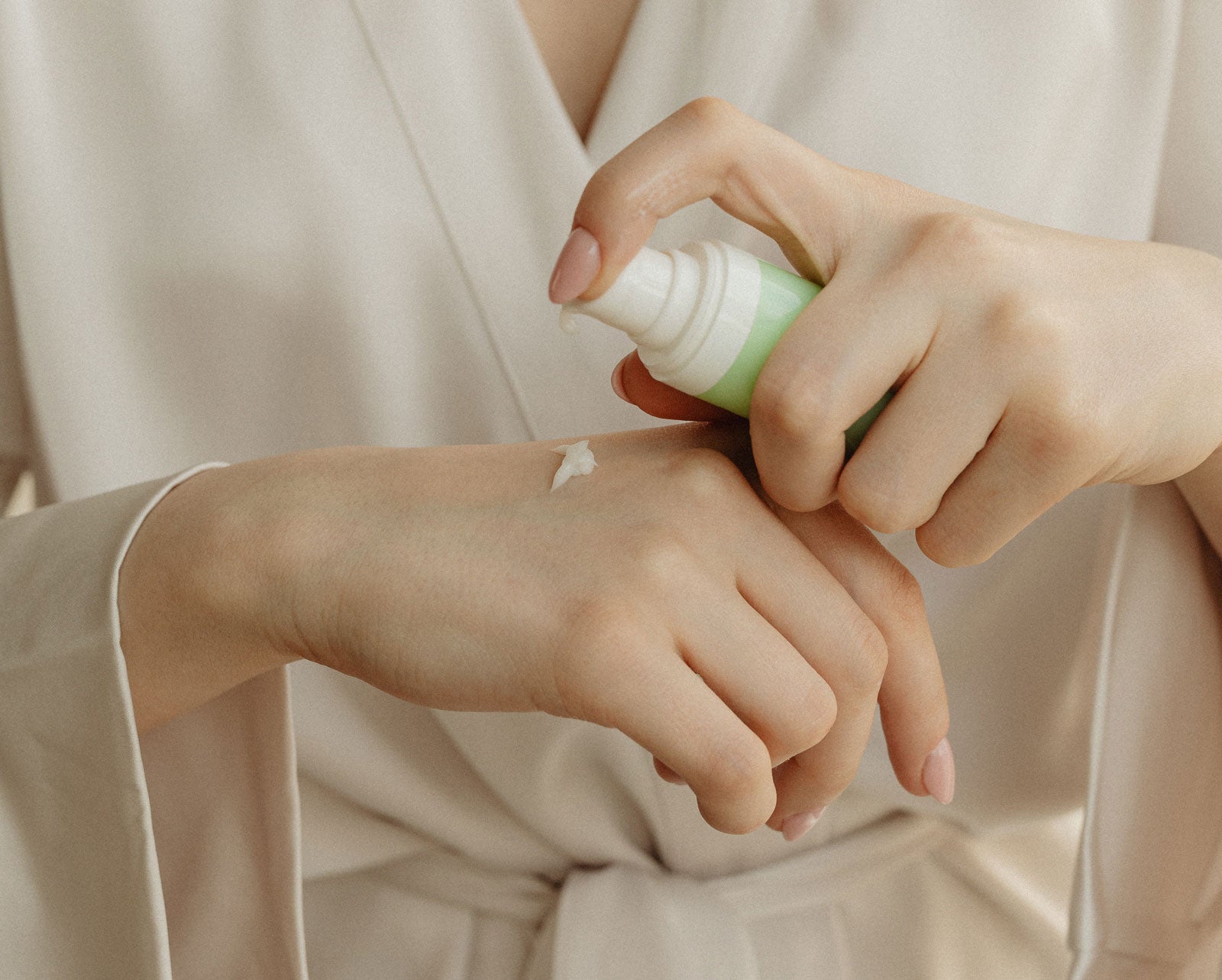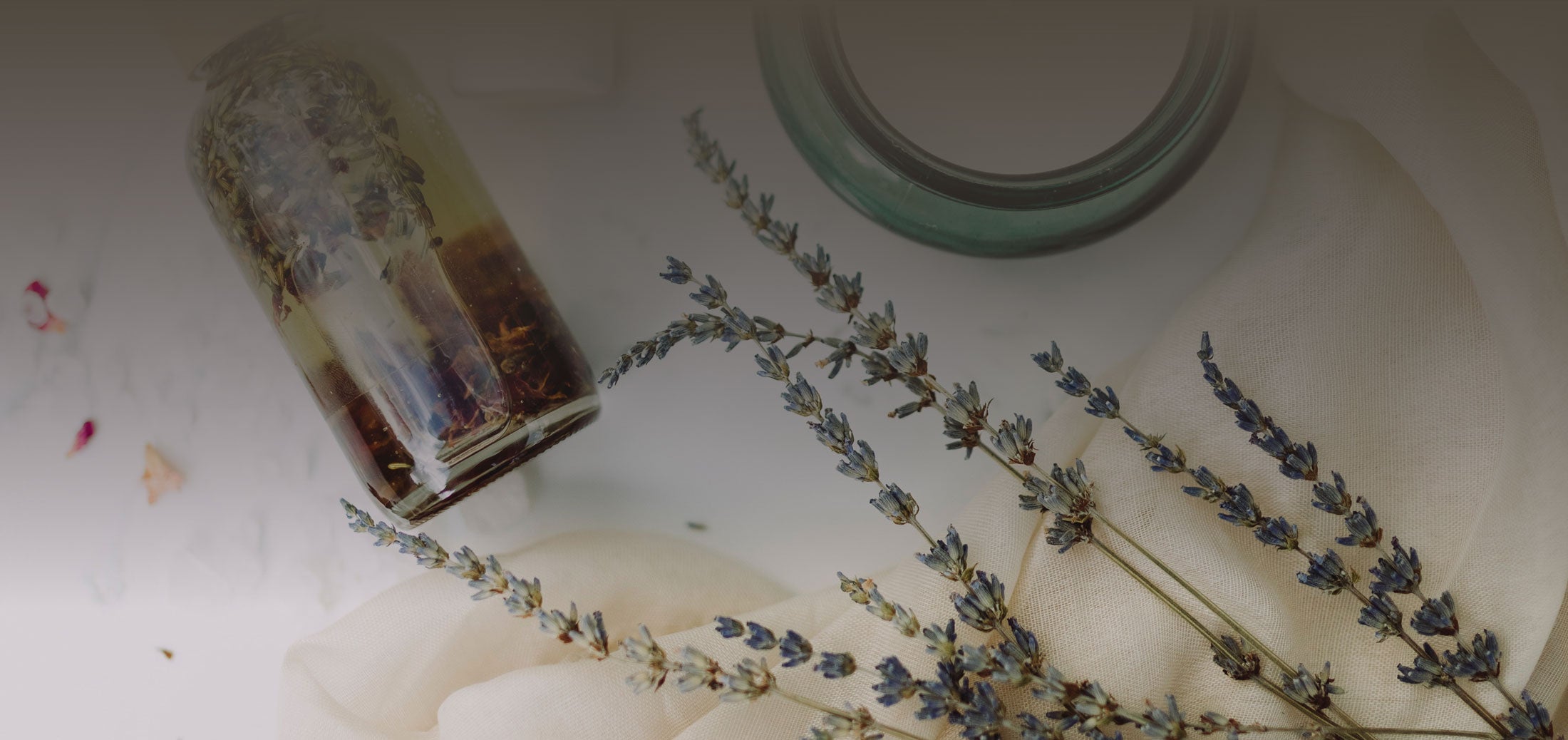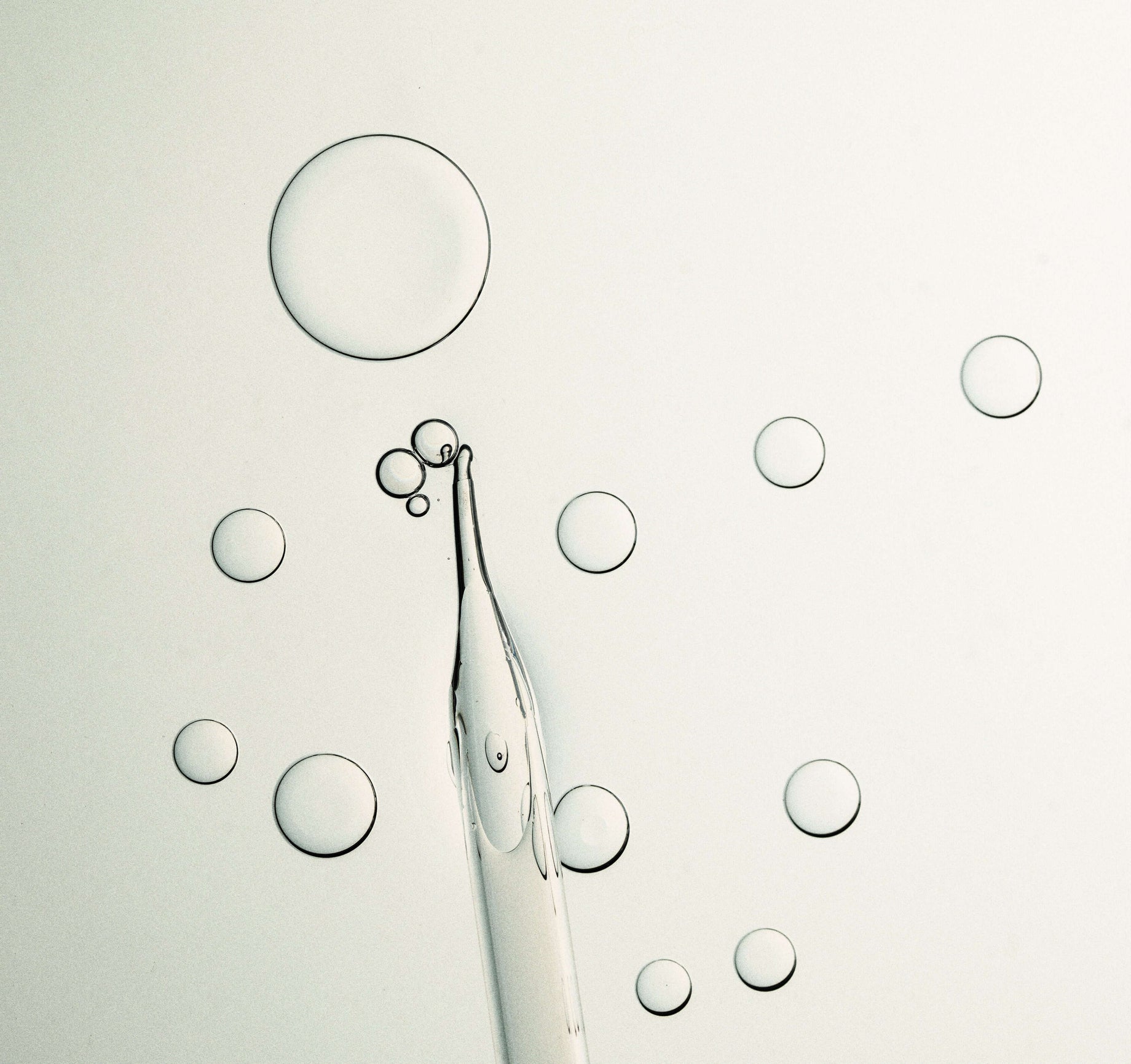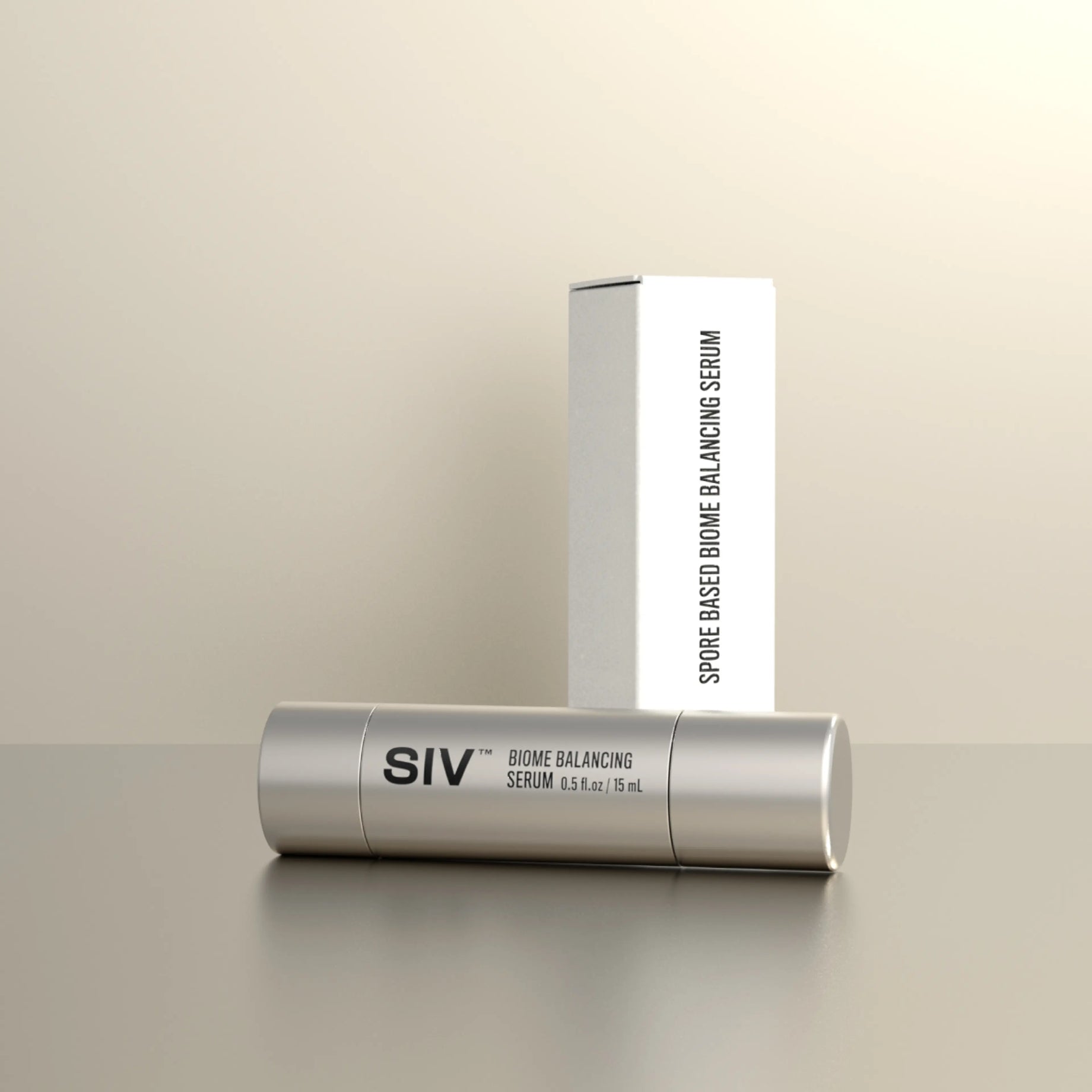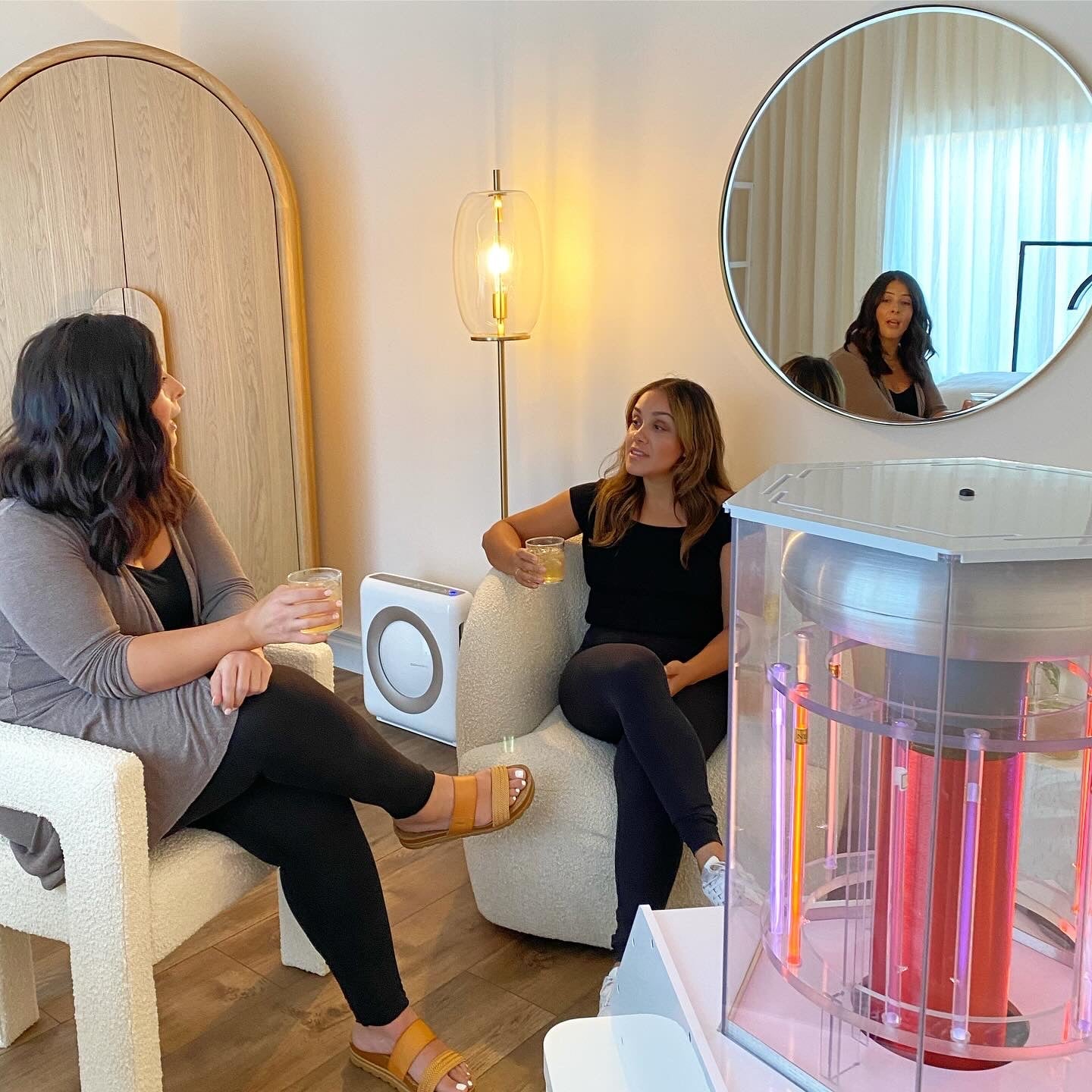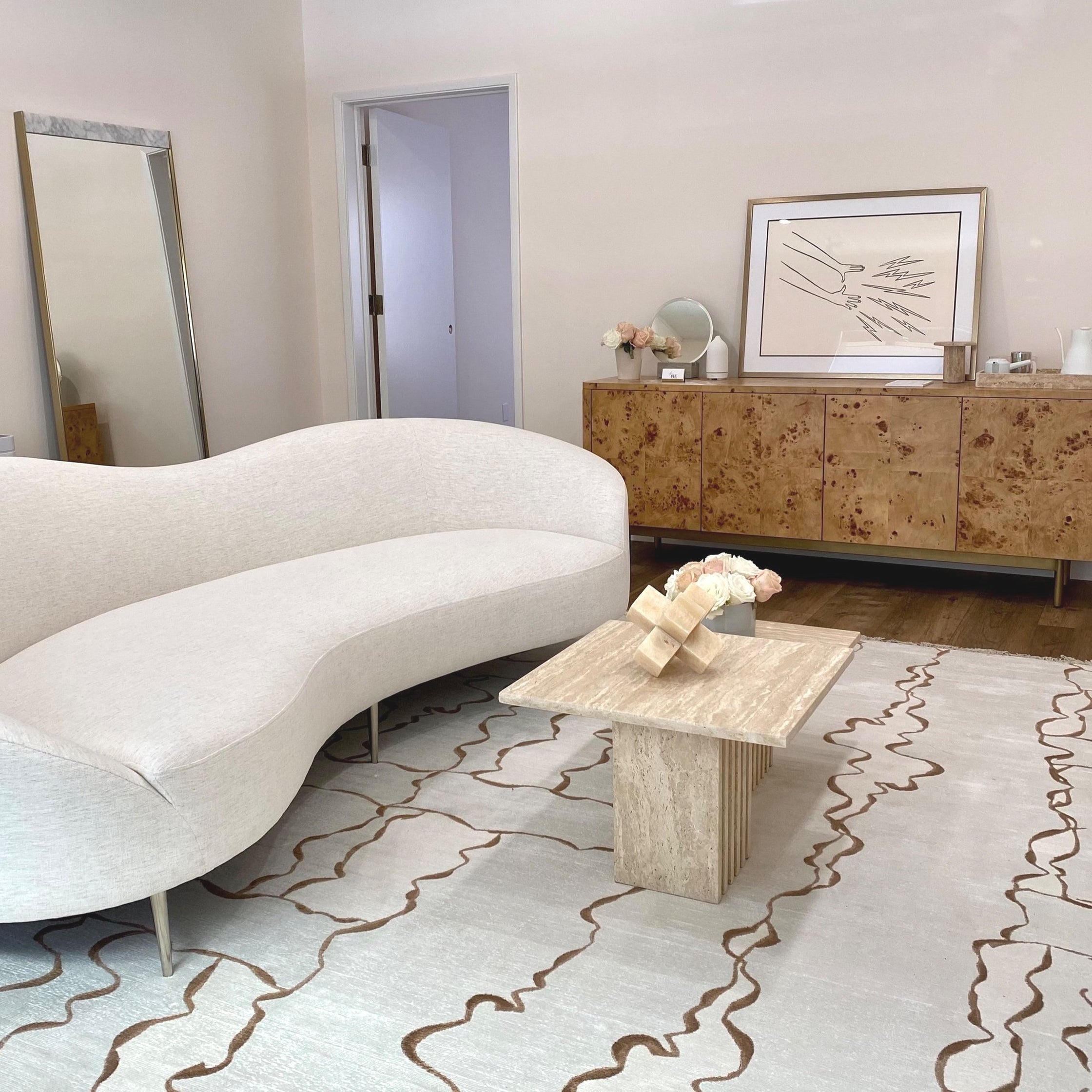
GRIEF & SKIN HEALTH
Grief is a profoundly intense experience that touches not only our mental health but also our physical well-being, including our skin. It can accelerate aging and impact the health and appearance of our skin in many ways. This post will explore the intricate relationship between grief, skin health, and aging.
Before we dive into the science of how stress and sadness affect our entire body, I'd like to share a personal story. This year, I experienced profound grief for the first time as an adult. It took me months to find the strength to talk about it. I lost someone very dear to me, or at least who was the most important person in my life at one point in the past. I feel fortunate that it took until I was 38 to experience this depth of loss. Despite my prior understanding of what losing someone might feel like, the reality was still profoundly shocking. I navigated through the classic stages of grief—denial, anger, depression—and grappled with complex feelings toward what was a tumultuous relationship.
I want to take a moment to say that my heart goes out to EVERYONE who has been less fortunate and is all too familiar with losing a loved one. As much as I am aware, this is something we will all go through in our lives; it doesn't make the experience any easier.
In an instant, I found myself broken. Sleep was elusive, and my appetite was non-existent. Every moment I wasn't with a client, I was crying. I was in the midst of one of the busiest work weeks this year and was terrified my clients could feel my sadness. One of the most notable parts of this experience was how these emotions permeated my entire life for months. I had a hard time being excited about my work and had zero interest in creating content on the channel.
It has taken me most of this year to get to a place where I feel comfortable talking about this experience and that, while I will always be sad when I think about it, I've moved through the worst of these feelings.
The universe works in mysterious ways. While I was amid my private despair, someone reached out to me on Instagram, asking me to create a video or blog post to address how grief affects the body, mainly how grief ages us. This person was mourning the loss of their mother, a prospect I cannot begin to wrap my mind around, and their constant sadness was taking a physical toll on their outward appearance. Stress or grief affecting us physically isn't a new concept. Still, I find the specifics quite interesting since I now know firsthand how they can change one's appearance. As with all things skin-related, the more we understand the mechanisms behind the symptoms, the better we can address them and make educated decisions moving forward.
Understanding the impact of grief on skin health and overall aging is crucial for wellness because it highlights the profound connection between emotional health and physical health. We truly cannot excel at one without the other. By recognizing and addressing how emotional stressors like grief affect the body, individuals can take proactive steps to support both their mental and physical well-being. This holistic approach can lead to more effective stress management and its manifestations, promoting better health outcomes and a higher quality of life.
To prevent this post from being all doom and gloom, I've incorporated tips and suggestions in each section to offer realistic solutions for addressing the mechanisms of accelerated aging.
Thankfully, not everyone has experienced this level of grief, yet I can imagine we have all been really stressed out at one time or another. Both of these mental states have similar physical effects on our body and cellular aging. Thus, I'll interchange the words grief, sadness, and stress throughout the post.
The Impact of Stress Hormones
Grief increases cortisol production, which has several detrimental effects on skin health. As a catabolic hormone, cortisol breaks down complex molecules, including collagen, which leads to a loss of skin elasticity and increased wrinkling. Elevated cortisol levels also stimulate excessive sebum production, potentially clogging pores and leading to breakouts. Additionally, cortisol impairs the skin's ability to produce new collagen. Terrifying! Chronic stress further elevates other hormones like adrenaline, which contribute to oxidative stress and inflammation, accelerating the aging process and further degrading skin health.
Tips
Reducing stress is not easy, especially in the midst of a heightened emotional state. There are obvious lifestyle suggestions like eating a healthy balanced diet, exercising regularly, and getting adequate amounts of sleep, but these might seem elusive while you're in the thick of it. Some additional things to think about:
Beneficial Supplements - This 2019 study found supplementing daily with an Omega-3 Fatty Acid was beneficial at lowering cortisol levels associated with occupational burnout.
Cry Your Heart Out - At this point you might be all cried out, but crying has been shown to decrease cortisol levels
Meditate - This article from Harvard shared that, “medical studies have showed that individuals who practice transcendental meditation daily had lower blood levels of epinephrine, norepinephrine, and cortisol.”

Hormonal Changes and Cellular Aging
The stress from grief not only disrupts cortisol but also influences other hormones like adrenaline and norepinephrine, stress hormones released during the body's fight-or-flight response, contributing to cellular senescence. Senescent cells, also known as Zombie Cells, are cells that stop reproducing but do not die off. Instead, they release chemicals that cause inflammation, damaging nearby healthy cells and spreading their senescence. Chronic exposure to these hormones can lead to increased oxidative stress and inflammation, which damage cellular structures and DNA. These hormones can accelerate aging processes at a cellular level, leading to visible signs of aging and health deterioration.
Key signs of cellular aging include reduced cellular function and slowed cellular division, which manifests in the body through symptoms such as loss of skin elasticity, increased wrinkles, graying hair, and a decrease in energy levels. At the cellular level, there is an accumulation of cellular damage due to oxidative stress and reduced effectiveness of cellular repair mechanisms. These changes contribute to the aging process by making cells less efficient at maintaining tissue health and functionality.
Tips
If you follow me, you are probably familiar with my love of light therapy and its many benefits. Studies have shown that LED Light Therapy is effective at reducing the signs of aging, in addition to improving symptoms of depression, as shown in this study done by Massachusetts General Hospital.
I use my Omnilux Face and Neck & Dec Masks daily and do a full-body LED treatment a few times a week when I'm working out of the Napa studio. Starting my day with an LED treatment not only helps my skin but also affects my mood. I'm lazy, so I often throw my mask on without cleansing my skin, as long as I haven't used retinol the night before, in which case I would cleanse prior to using my mask. When my alarm goes off in the morning, I turn on a 12-minute soundwave treatment from the Evolutioner App which creates daily frequency treatments based on a NASA study showing that certain frequencies can reverse aging and promote healing. It essentially sounds like spa music, and I find it to be a lovely way to start my day. While that's playing, I put on my Omnilux masks, which offer a quick 10-minute LED treatment.
Sleep Disturbances
Grief often disrupts sleep, leading to poor skin repair and regeneration. Dark circles, puffiness, and a dull complexion are common. Prioritizing sleep and using targeted skincare treatments like eye creams and hydrating masks can help improve the skin's appearance. Need help figuring out which products to use morning and night? I made a video to help clarify your skincare routine.
Lack of sleep significantly impacts cellular health by reducing the body's ability to repair cellular damage. Sleep is critical for cellular restoration; during sleep, processes that remove waste products from cells are accelerated, and cells produce more proteins, which are crucial for cell repair. Insufficient sleep disrupts these processes, leading to accumulated cellular damage, increased oxidative stress, and inflammation. This can accelerate aging and weaken the immune system, making the body more susceptible to various diseases.
Tips
They don’t call it beauty sleep for nothing! Prioritizing sleep is not only helpful when coping with loss but an integral part of promoting longterm health and aging gracefully. I’m sure you’re not surprised I’m a big Huberman Lab fan. Dr. Andrew Huberman has covered a wealth of information on the topic of sleep hygiene and created some simple protocols for promoting restful sleep and recovering from a poor night’s sleep over on his Daily Blueprint.
Skincare Neglect
During periods of mourning, routine skincare might take a backseat, worsening skin conditions like dryness or acne. Skipping your daily skincare routine can negatively affect the skin's barrier function and overall health. The skin barrier serves as the first line of defense against environmental pollutants, bacteria, and other potential irritants. Regular skincare maintains the strength and integrity of this barrier. When neglected, the skin can become dehydrated, less resilient, and more susceptible to irritation and infections. This can lead to increased dryness, sensitivity, and accelerated aging due to the compromised ability to retain moisture and protect against external elements. Establishing a simplified skincare routine can ensure that even on tough days, the skin's basic needs are met.
Tips
Keep it simple. This is probably the only time you'll find me promoting a two-step skincare routine, but in lieu of nothing at all, two steps will cover your bases and help you maintain skin health till you find the energy to do more. Cleanse, then moisturize. If bending over a sink seems like too much effort, micellar cleansing water is a fantastic option. Simply wipe a cotton round saturated with micellar on to your skin, no need to rinse. This product cleanses, tones, and hydrates all in one step. Follow this up with your favorite facial oil or moisturizer.
Weakened Immune Response
Grief can weaken the immune system, making the skin more susceptible to infections and slower to heal. Your skin is a crucial part of the body's immune defense. It acts as the first barrier against external pathogens, pollutants, and environmental aggressors. The skin contains specialized cells of the immune system, called Langerhans cells, that can recognize harmful microbes and fight infection. Additionally, the skin's outer layer is slightly acidic, which helps inhibit the growth of pathogens, and it secretes antimicrobial peptides that destroy harmful bacteria. Thus, maintaining healthy skin is essential for overall immune function.
Tips
Maintaining a healthy diet and considering supplements to boost the immune system can protect and improve skin health.
Vitamin C is a powerful immune booster that also supports collagen synthesis.
Vitamins A, E, & D are also integral to skin health and play pivotal roles in the body’s immune processes.
Zinc is essential for immune system function, reduces inflammation, and protects tissue barriers in the skin. Make sure your Zinc supplement includes Copper for proper absorption.
Essential Minerals are another necessary addition to your daily nutrition for supporting proper immune function.
During normal periods of optimal health, most, if not all of these vitamins and minerals, can be obtained through your daily diet. However, it might be worth considering supplementation during bought of stress. This option from Thorne could be beneficial as it has all the above plus antioxidants and Nicotinamide riboside (NR), which has been clinically proven to increase NAD+, an important coenzyme that declines with age.
Reduced Blood Flow
Emotional stress affects blood flow; when blood flow is diminished, less oxygen and fewer nutrients reach the skin, which is essential for maintaining healthy skin cells and promoting their regeneration. This can lead to a dull complexion, increased dryness, and a slower healing process for damaged skin. Over time, inadequate blood flow can accelerate the appearance of aging by contributing to the development of wrinkles, loss of elasticity, and uneven skin tone.
Tips
Activities that promote circulation, such as exercise and facial massages, can enhance skin glow and vitality. Watch this video to learn how to use a gua sha tool for simple facial massage at home. Alternatively, LED Light Therapy is beneficial at improving blood flow and stimulating collagen to minimize the look of fine lines and wrinkles.
Inflammation and Aging
Prolonged grief can lead to decreased cortisol sensitivity, which poorly regulates inflammatory pathways, resulting in increased inflammation. This chronic inflammation can accelerate aging by damaging cells and tissues, contributing to age-related diseases and worsening the skin's appearance.
Increased inflammation can significantly age the skin and cells by promoting oxidative stress and damaging cellular structures, including DNA, proteins, and lipids. This damage impairs the cells' ability to function properly and regenerate, leading to visible signs of aging, such as wrinkles, sagging, and a loss of skin elasticity. Inflammation also disrupts normal cellular signaling pathways, which can accelerate the decline in tissue health and contribute to the development of age-related diseases.
Tips
The easiest ways to reduce inflammation are to increase your healthy eating by including servings of leafy greens, decrease your alcohol consumption, quit smoking (if that is something you do), and move daily (20 minutes of walking is a great start). The University of California at Davis put together healthy eating tips to reduce inflammation.
I love using frequency-based therapies to reduce inflammation as they stimulate the body at a cellular level, whether with specific anti-inflammatory Biocharger recipes or with my Haelo PEMF device (my favorite Haelo frequency set stimulates the parasympathetic state to not only reduce inflammation but as reduce stress).

Conclusion
Understanding how grief affects the skin is crucial for developing strategies to care for it during tough times. By addressing grief's emotional and physical aspects, we can better manage its impacts on our skin and overall health. Remember, it's important to seek support and prioritize self-care, not only during these challenging periods but also the rest of the time.
I won't lie; putting this blog post together stressed me out! Thinking about the impact of stress on my health increased my stress level. I'm sure I'm not alone in this. When it comes to addressing the effects of stress on our cellular health and creating healthy changes and routines in our daily lives, I think it is helpful to remember that no one is perfect, and every tiny shift helps.
While I already eat pretty clean, exercise regularly, and supplement with adaptogens, vitamins, and minerals, mindfulness practices are something I've had challenges incorporating into my daily routine. So, this is where I started. I've taken a few breath-work classes that I enjoyed at Open's Venice studio. I recently downloaded their app, which offers short (under 20 minutes) guided meditations, breathing exercises, and yoga classes. I have been trying to incorporate one to two of these sessions daily. It has helped me spend 10 minutes focusing on something other than my thoughts.
With that in mind, I suggest finding one "Tip" that resonated with you and trying to incorporate it instead of drastically changing your daily routine. Then, after a little success, try slowly adding in another. Baby steps. Slowly but surely, a shift will start to take place.
Resources
I am including a few online resources for anyone who needs someone to talk to. Please, please, please know that you are not alone, and there is nothing too big or too terrible to overcome. I have found therapy incredibly helpful. Sometimes, just saying things out loud is enough; other times, having another viewpoint to consider can be the catalyst for change. In times of burden in the human experience, we often look towards something bigger than ourselves to make sense of it all. I resonate more with spirituality and a hint of woo over organized religion. I will include a link to something called a Theta Healing that created a definitive shift in how I felt. Group activities like breath-work classes and guided meditations have also become powerful tools and occasions for being surrounded by people without interacting directly (sometimes that's all you need). Suppose your inclination is towards something more traditional. In that case, I urge you to look for those opportunities in your community, whether joining a congregation or meeting one-on-one with a pastor or priest. Below are a few online resources if you'd like to start by dipping a toe more anonymously:
Find A Therapist https://www.betterhelp.com/get-started
Suicide Prevention Resources https://focus.senate.ca.gov/mentalhealth/suicide
Grief Support https://whatsyourgrief.com/
Theta Healing & Energy Work https://www.laurencortes.com/


